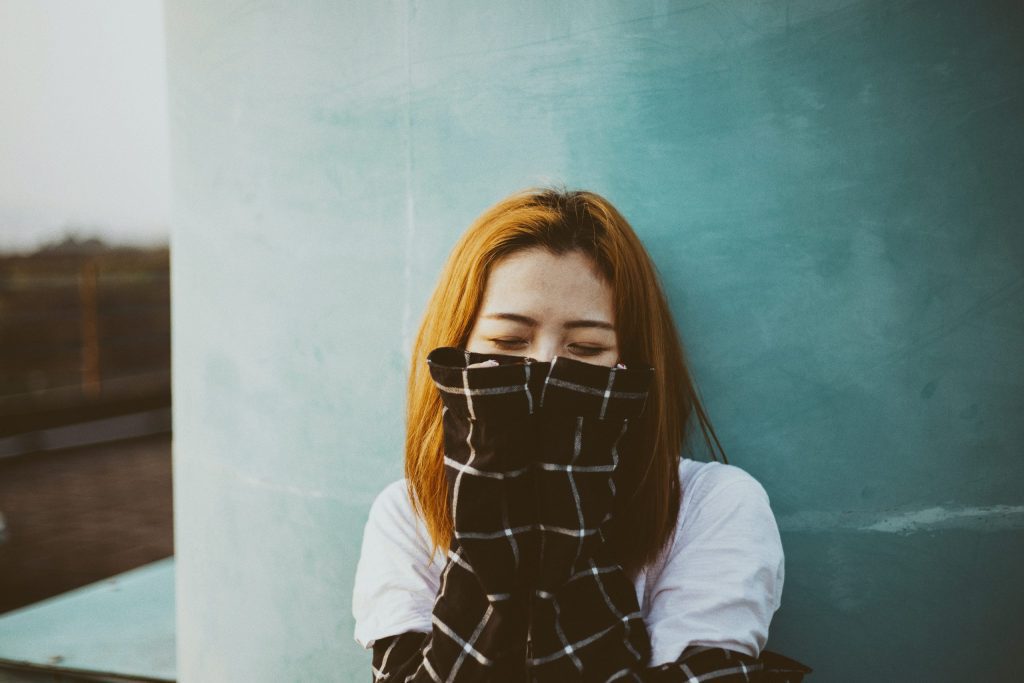Does hearing laughter as you walk by a group of people make you feel self-conscious?
Are you a lover of the great indoors, specifically your home?
You walk into a room of seated people, and they’re looking at you. How do you feel?
Everybody experiences social discomfort throughout their lives. It’s the reason for common sayings like ‘putting your foot in your mouth’ and ‘read the room.’
A social gaffe can make us feel embarrassed, leaving us to reflect on the interaction for minutes, hours, or even a couple of days if it was super awkward.
However, if you’re constantly rethinking past social interactions, and experiencing prolonged anger or shame, then keep reading. You might think these are just little quirks of personality, but what you’ve accepted as part of you is likely poor conditioning that’s holding back your progress on a personal and professional level.
The good news is that social anxiety is common, and many healthcare professionals are well versed in treating it. However, on a societal level, it needs to be treated with greater understanding.
HUFFPOST – 8 Stats That Prove Social Anxiety Needs To Be Taken More Seriously
Don’t worry. You can fix this!
What Does Social Anxiety Look Like?
Some people are naturally more reserved, while others can be more outgoing. Other people fluctuate from ‘don’t talk to me—ever’ to being the loudest life of the party. Shyness and discomfort in certain situations are quite normal and not necessarily a sign of social anxiety.
Comfort levels vary based on personality and life experience. They can even be impacted by whether you’ve eaten or slept well.
Shyness and discomfort are only a problem when they limit our ability to express ourselves as completely developed adults in the world around us. Social anxiety involves fear and avoidance that interfere with our relationships, everyday tasks, work, school, and any activity of importance to us.
Symptoms include frequent:
- Awkwardness and embarrassment just from being in the presence of others
- Sweating, blushing, and trembling in situations where you have no choice but to interact, such as a job interview, and fearing others will notice these symptoms
- Avoiding going places and doing things
- Rigid posture or overly soft voice in social interactions
- ‘Mind going blank’ or responding without feeling or thinking first
- Prolonged agonizing or analysis of past social interactions
- Fearing punishment or expecting the worst possible outcome from negative interactions
- Feeling the need to hide or perform instead of just relaxing and being yourself
- Stomach upset or gastrointestinal discomfort when interacting with others
- Difficulty developing or keeping friendships, romantic relationships, or jobs
What Comes Before the Dreaded Feelings of Anxiety?
- Negative self-talk – People with social anxiety have constant negative thoughts about themselves and how others will react to them
- Excessive concern about what others think – People with social anxiety tend to believe they are the cause of the feelings and behavior of others in their presence. Conversely, the perceived or actual reactions of others have too much weight in their perception of social experiences
- Anxiety blocks our ability to feel, think and respond appropriately because social fear disconnects us from our authentic selves and sometimes can be so intense that our minds go blank. Unfortunately, this can go on for so long in a relationship that others can never truly know us.
Where Does It Start?
Anxiety disorders tend to run in families though it’s unclear if this is due to genetics or passed down by behavior.
Social anxiety disorder may be a learned behavior. Some people may develop significant anxiety after a challenging or embarrassing social situation. There may also be a link between social anxiety disorder and parents who are either anxious in social situations or are controlling or overprotective of their children.
The National Library of Medicine published a family study that found that children with an anxiety disorder more often than not have parents with an anxiety disorder. Moreover, social anxiety disorder (SAD) was more prevalent than other anxiety disorders in the families of children with SAD. The study concluded that parental influence should be considered when treating this disorder in children.
Social situations can affect a region of the brain called the amygdala, which plays a role in the fear response. People who have an overactive amygdala have a heightened fear response, causing them to perceive social situations as dangerous.
Social Anxiety can also be linked to complex post-traumatic stress disorder (CPTSD) and closely mirrors common psychological symptoms associated with the coping mechanisms of trauma—most notably the four F’s: Fight Flight, Flee, and Faun (or freeze).
Where Does It Lead?
- Extreme sensitivity to criticism
- Isolation and difficult relationships
- Poor social decision-making
- Inability to correctly perceive facial expressions and tone of voice
- Low achievement
- Self-medication with drugs, alcohol, and food
- The constant need for distraction, such as internet, phone, or shopping
- Trouble being assertive and setting boundaries
- Unwarranted feelings of hostility towards others
- Reserved, standoffish, or snobby attitude
- Suicidal thoughts or attempts
LifeStance Health – 4 Ways That Untreated Social Anxiety Impacts Physical Health
Solutions
As stated earlier, social anxiety disorder is a well-researched condition with many treatment options available.
Many people with social anxiety have had success using:
Cognitive Behavioral Therapy (CBT) – CBT is a multifaceted form of psychological treatment that has helped many heal from a variety of disorders. In treating social anxiety, CBT can facilitate clarity allowing us to see the reality of our interactions with others by removing limiting beliefs. A good CBT practitioner gives us tools to manage ourselves in the moment so we can move forward and enjoy life as who we really are.
Support Groups – Many who suffer from social anxiety find support groups helpful because we can interact with others who ‘get’ us. Often our first social experiences as our authentic selves happen in this setting. Support groups help us realize that our perceptions of constant rejection, disrespect, and judgment are often inaccurate. They also allow us to witness other people in various stages of healing and give us the wonderful experience of lending a helping hand to those who suffer as we do.
Medication:
- Anti-anxiety medication
- Antidepressants
- Beta-blockers
If you want to explore medication for social anxiety, your doctor can work with you to discover which drugs and treatments will work best for you. Medication has helped many get mental and physical relief and the ‘brain chemistry reset’ they needed.
The Bottom Line
Remember, these options are a way of coping, not a solution. Without treatment, social anxiety worsens over time, and blind spots develop, creating missed opportunities for love, satisfaction, and experiencing life as the REAL you.
No one wants to live in an inauthentic diminished state, only trying to get by without being rejected or judged. Don’t spend your time hiding, wishing, and feeling that life’s passing you. Get help as soon as you can.
Helpful Links
To learn more about social anxiety disorder, visit:
- Medline Plus (National Library of Medicine) http://medlineplus.gov/
- (En español: http://medlineplus.gov/spanish)
For information on clinical trials, visit:
- ClinicalTrials.gov: https://clinicaltrials.gov
- (En español: http://salud.nih.gov/investigacion-clinica/)
More resources:
- https://www.anxietycanada.com/disorders/social-anxiety-disorder/
- https://adaa.org/understanding-anxiety/social-anxiety-disorder
- https://www.cci.health.wa.gov.au/Resources/Looking-After-Yourself/Social-Anxiety
- https://www.verywellmind.com/best-self-help-books-for-social-anxiety-3024248
If you or someone you know experiences mental health issues, it is important to seek help from a qualified professional. Our Resource Specialist can help you find expert mental health resources to recover in your community. Contact us now for more information on this free service to our users.

Avalon King (These Compelling Words) is a thriving Canadian survivor and a dynamic writer. She creates engaging articles and blog posts on mental health. Topics she writes about include CPTSD, food addiction/weight loss, and supplements for the mind and body.
July is BIPOC Mental Health Month
Observed each July and formerly recognized as National Minority Mental Health Awareness Month, BIPOC Mental Health Month highlights the unique mental health challenges and needs of Black, Indigenous, and other People of Color (BIPOC). Please join us in recognizing the struggles of BIPOC and bringing awareness to the need for adequate, accessible, culturally relevant mental health treatment, care, and services.
www.rtor.org and its sponsor Laurel House are committed to the advancement of racial equity and social justice and to making mental health services available to all.
Photo by Larm Rmah on Unsplash
The opinions and views expressed in any guest blog post do not necessarily reflect those of www.rtor.org or its sponsor, Laurel House, Inc. The author and www.rtor.org have no affiliations with any products or services mentioned in the article or linked to therein. Guest Authors may have affiliations to products mentioned or linked to in their author bios.





